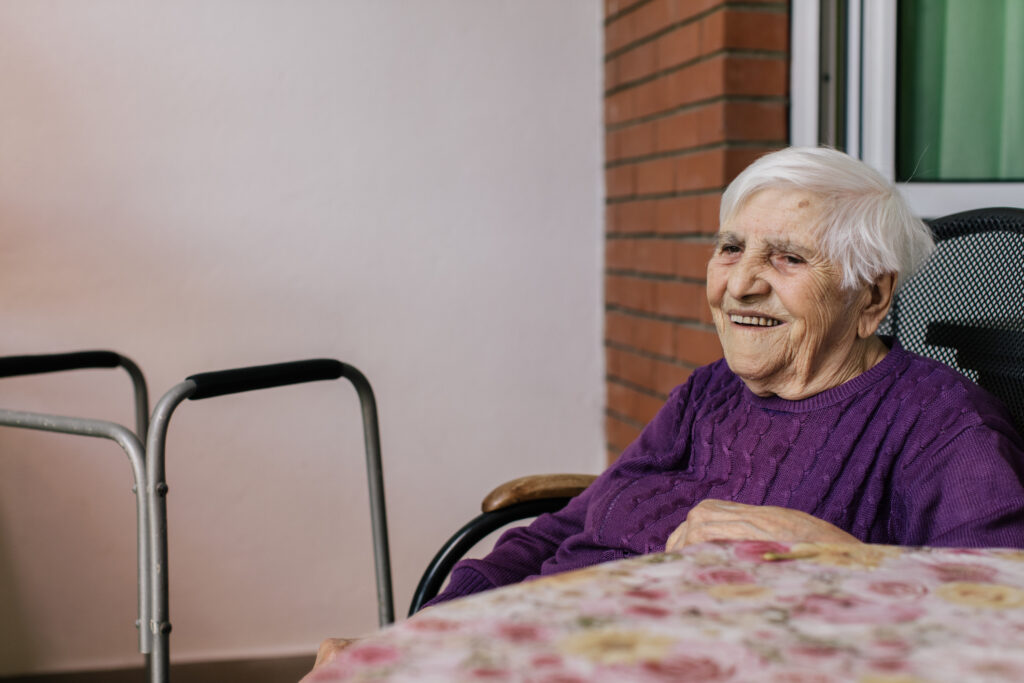
“Charity Bank went out of their way for us.”
The James Charities borrowed £1,363,000 towards the cost of building 10 one-bedroom almshouse flats. £75,000 of the loan was through our Cost-of-Living programme and came with a £75,000 grant.
Here’s what William Coffin, CEO of The James Charities, has to say about his experiences with Charity Bank.
Can you tell us about the 10 new flats?
They’re all fully accessible and designed to meet the HAPPI principles to ensure that people in later life are able to live happily in their homes. We’re on track to complete in November. Four of our existing residents will move over. Their mobility has decreased, so they will benefit from either a downstairs flat or one that’s accessible by lift. Six new residents will also move in, and we’ll then have four vacant flats in the older buildings, which we’ll refurbish. By next summer, we’ll have 42 flats in total.
Why did you choose Charity Bank for your loan?
We looked at other banks, two in particular. It became quite clear that one didn’t understand almshouses. We considered the other for quite a while, but in the end we got a better deal from Charity Bank, so that’s who we went for.
What was your experience of working with Charity Bank?
Charity Bank were helpful right from the start and really went out of their way for us. I’ve contacted Wesley Lovett several times with quick questions. One of our directors, who’s our expert in construction, will often phone him up as well to chat things through. You’re not just speaking to someone who checks their computer and does whatever it says!
Before we’d even signed anything with them, Charity Bank arranged for Danny Wilson-Dodd to meet with one of our directors while he was at Edinburgh Airport. We really appreciated that Danny was available for us in that way.
Then just before Christmas, the builders were off for their Christmas break, and there was a storm, which knocked over the residents’ large Christmas tree. Wes came for a meeting and helped us to put it back up. He had smart shoes on and could easily have said, “That’s not my job,” but he was happy to help.
Were there any challenges to the loans process that you weren’t aware of beforehand?
The biggest challenge is that upfront fees need to be paid. There’s a commitment fee and an arrangement fee, which is quite a hit when you have to pay them out before you receive the loan.
The other challenge was those great big spreadsheets. Our annual income and expenditure before this was around £200,000. We’re currently around £2 million, so we’ve suddenly had to scale up and do a lot of accountancy work that we’re not really used to. However, we were able to recruit a new director, who is a recently retired accountant, and he’s been extremely helpful.
So would you say that it’s useful to have someone with a financial background on your board when you’re applying for a loan?
Yes because a lot of the terms and calculations can be confusing if you’re not familiar with them, such as amortisation. Sharon Gooch from the Lending Services team was very good at explaining things, but there’s a lot to learn, especially if you’re also trying to manage a development project for the first time.
My advice is to find a project manager to help. An architect will manage part of the project, but not the whole thing; they don’t manage applying for a loan or any of the other financial elements of the work.
Were your board members all happy to take on a loan of this size, or did they take some convincing?
We always had unanimity; no one was against it. However, it’s the largest loan we’ve ever taken on, so we had a few board meetings where they could really look at the numbers, make sure that we can pay the loan back, and consider what would happen in the worst-case scenario.
We were taking a risk, but not a great risk. It’s also in Charity Bank’s best interest that the figures add up. They wouldn’t want to lend to us if we’re going to go bankrupt. So, we know that we’re in it together, and that’s why they were asking us for all of these spreadsheets to project the future.
It was useful to have Charity Bank to look over all our spreadsheets. They worked it all out and decided that yes, we are a safe pair of hands. That was reassuring.
If you need a loan for your almshouse charity or housing association, please contact Charity Bank at [email protected].
About Charity Bank
Charity Bank is the loans and savings bank owned by and committed to supporting the social sector. Since 2002, we have used our savers’ money to make more than 1400 loans totalling over £605m to housing, education, social care, community and other social purpose organisations.
Nothing in this article constitutes an invitation to engage in investment activity nor is it advice or a recommendation and professional advice should be taken before any course of action is pursued.


